Customer Services
Copyright © 2025 Desertcart Holdings Limited


desertcart.com: Introduction to Tibetan Buddhism: 9781559392822: Powers, John: Books Review: A phenomenal resource & very detailed reference - Truly, this is among The Great Books to buy and keep near you when you are earnestly seeking to understand Tibetan Buddhism and will benefit from a wealth of references to everything you might want or need to investigate in greater detail. No single book could provide in depth information about every aspect of Tibetan Buddhism, why and how it is unique; John Powers has done a brilliant job of anticipating the questions that would likely arise in the mind of someone who wishes to pursue the path of Enlightenment and has been drawn to Tibetan culture and the intense devotion of the Tibetan people to "be as they are and as they were" regardless of many decades and cycles of suffering, destruction and death. We are first given a history of the evolution of Buddhism and tremendous insight into the formation and embracing of Buddhism as a spiritual 'system' of learning within Tibet. While other countries and cultures have embraced Buddhism prior to Tibet, there is an inexplicable power about the people and the place which made Buddhism almost synonymous with the Tibetan culture. Having been drawn to the Tibetan expression of these spiritual teachings, these book informs me that I did not choose an 'easy' path: for a Westerner to honestly comprehend and do all that is necessary to accomplish the appreciation of emptiness, let alone the ability to contemplate emptiness and know all else is bliss.. this requires Refuge which can be very difficult for most of us to attain. I first sought the Teachings of Buddha in a moment of anger, when I could have used information to bring harm to a person who had behaved very badly. It was then that I learned that if I could not remain compassionate and kind, instead giving in to the feelings of greed, anger and foolishness, I must stay away from these people -- they are, for me at least, evil. John Powers' book has aided me tremendously in refining what I'd learned and informing me "Ah, it is not so easy as all that...!" Even when I am able to maintain kindness and compassion no matter who is tormenting me, this is an important aspect, but only an aspect, of so very much work that must be accomplished. I'm spending as much time researching even more of what John Powers has already written of in painstaking detail. Even for HH the Dalai Lama with lifetimes of accumulated experience as a perfect being, Kundun has been and still must seek to maintain equilibrium. He's had to make some terribly difficult decisions in the name of keeping peace ~ and for this, he is criticized by some ~ truly, there's been enough bloodshed and he wishes everyone to get along and for persecution of all people to cease. Praying for the persecutors is not the same as the Christian who 'turns the other cheek' in response to insult: parallels can and will be drawn, but the enormous difference is the belief in perfecting one's own nature and achieving Buddhahood versus asking an unseeable and unknowable deity to forgive the ignorance of the persecutor. Each Buddhist feels the connection to all other sentient life, yet there is the knowledge of the illusion and the responsibility to find the clear, unencumbered knowing an action (or inaction) is correct. The Buddhist has no one who died for their absolution and no church is necessary. In Tibetan Buddhism, there is an amplification of these almost indescribable qualities of compassion and connectedness and simultaneous acceptance and contemplation of emptiness. John Powers describes what may seem like an impossible paradox beautifully... well enough that I can grasp what I cannot quite express. Tantra in various manifestations is explained with great precision. Many Westerners will be disappointed to learn that the bliss is accomplished via sexual union in one end of the spectrum, yet to achieve the necessary courage and resilience to approach an Enlightened and Clear Mind via this path requires an ability to identify with certain Gods and Goddesses in such a way that one either befriends or (more powerfully) becomes them. And the same is true for the consort of partner. Tantra is explained as being dangerous, because this is true. Westerners I've met have bought books of yoga poses which promoted 'better sex' which missed the point entirely and some have gotten themselves into serious psychological crises. In Tibetan Buddhism, you work and practice ~ rarely will anything be attained easily. And when one chants, it is most often to send a prayer of good out into the world and send prayers almost as often as one breathes and until it becomes something like an autonomic process. Put good thoughts and feelings out for all to benefit. Rarely does one pray for themselves and when they do it is to achieve a greater understanding or strength within themselves with a goal of separating the spiritual from the physical and material realms. Simply put, one wishes not only to be "a better person" but to become much more than this in order that the world will benefit. This is not the 'ego loss' so feared by Westerners (and it is the clinging to same which is much more frightening). And to identify oneself with a deity in order to walk with or become one with that deity is not madness or megalomania; it is asking a great deal of bravery of oneself and then shrugging off the asking as "no big deal." As of this moment in time, this is my best understanding ~ and I've come even this small distance quickly, relying on and trusting the information in this excellent book as a catalyst to more expansive horizons. As for the person who wrote the review complaining about the 'Feminist approach' in Powers' writing being in some way upsetting, I believe there is quite a lot more literature that assumes a masculine voice and find it refreshing to hear reference to 'she' and 'herself'. It is also wonderful that in Tibetan Buddhism, women are taken quite seriously as monks, Dakinis (Goddesses in benevolence and in wrathful aspect, as warriors and terrifying forces) and, as much as their male counterparts, "people to be reckoned with." It is this way in life ~ why would there be an imbalance in spirituality? Review: Wonderful Refresher Course - I have been practicing Buddhism now for over 10 years & am continually learning new facts, laws, our Tibetan repression by other countries.. I don't always get a chance to read page for page from this book, but it is a wonderful resource to have available.

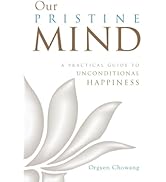
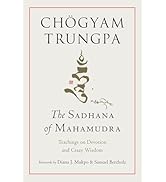
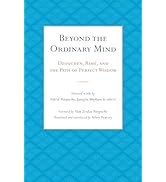

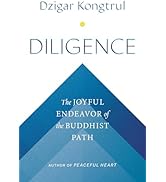



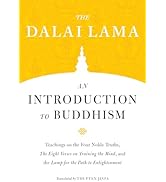



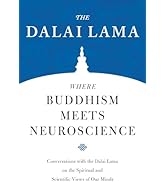
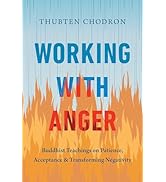
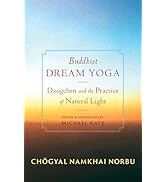
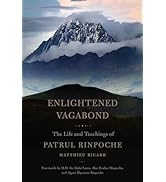
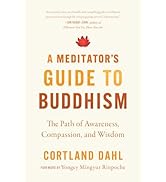




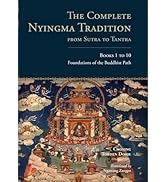

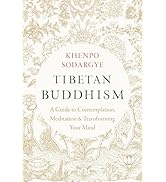
| Best Sellers Rank | #834,859 in Books ( See Top 100 in Books ) #124 in Buddhist History (Books) #561 in Tibetan Buddhism (Books) #1,052 in Chinese History (Books) |
| Customer Reviews | 4.8 4.8 out of 5 stars (72) |
| Dimensions | 6.01 x 1.49 x 9 inches |
| Edition | Revised |
| ISBN-10 | 1559392827 |
| ISBN-13 | 978-1559392822 |
| Item Weight | 1.77 pounds |
| Language | English |
| Print length | 592 pages |
| Publication date | November 9, 2007 |
| Publisher | Snow Lion |
M**T
A phenomenal resource & very detailed reference
Truly, this is among The Great Books to buy and keep near you when you are earnestly seeking to understand Tibetan Buddhism and will benefit from a wealth of references to everything you might want or need to investigate in greater detail. No single book could provide in depth information about every aspect of Tibetan Buddhism, why and how it is unique; John Powers has done a brilliant job of anticipating the questions that would likely arise in the mind of someone who wishes to pursue the path of Enlightenment and has been drawn to Tibetan culture and the intense devotion of the Tibetan people to "be as they are and as they were" regardless of many decades and cycles of suffering, destruction and death. We are first given a history of the evolution of Buddhism and tremendous insight into the formation and embracing of Buddhism as a spiritual 'system' of learning within Tibet. While other countries and cultures have embraced Buddhism prior to Tibet, there is an inexplicable power about the people and the place which made Buddhism almost synonymous with the Tibetan culture. Having been drawn to the Tibetan expression of these spiritual teachings, these book informs me that I did not choose an 'easy' path: for a Westerner to honestly comprehend and do all that is necessary to accomplish the appreciation of emptiness, let alone the ability to contemplate emptiness and know all else is bliss.. this requires Refuge which can be very difficult for most of us to attain. I first sought the Teachings of Buddha in a moment of anger, when I could have used information to bring harm to a person who had behaved very badly. It was then that I learned that if I could not remain compassionate and kind, instead giving in to the feelings of greed, anger and foolishness, I must stay away from these people -- they are, for me at least, evil. John Powers' book has aided me tremendously in refining what I'd learned and informing me "Ah, it is not so easy as all that...!" Even when I am able to maintain kindness and compassion no matter who is tormenting me, this is an important aspect, but only an aspect, of so very much work that must be accomplished. I'm spending as much time researching even more of what John Powers has already written of in painstaking detail. Even for HH the Dalai Lama with lifetimes of accumulated experience as a perfect being, Kundun has been and still must seek to maintain equilibrium. He's had to make some terribly difficult decisions in the name of keeping peace ~ and for this, he is criticized by some ~ truly, there's been enough bloodshed and he wishes everyone to get along and for persecution of all people to cease. Praying for the persecutors is not the same as the Christian who 'turns the other cheek' in response to insult: parallels can and will be drawn, but the enormous difference is the belief in perfecting one's own nature and achieving Buddhahood versus asking an unseeable and unknowable deity to forgive the ignorance of the persecutor. Each Buddhist feels the connection to all other sentient life, yet there is the knowledge of the illusion and the responsibility to find the clear, unencumbered knowing an action (or inaction) is correct. The Buddhist has no one who died for their absolution and no church is necessary. In Tibetan Buddhism, there is an amplification of these almost indescribable qualities of compassion and connectedness and simultaneous acceptance and contemplation of emptiness. John Powers describes what may seem like an impossible paradox beautifully... well enough that I can grasp what I cannot quite express. Tantra in various manifestations is explained with great precision. Many Westerners will be disappointed to learn that the bliss is accomplished via sexual union in one end of the spectrum, yet to achieve the necessary courage and resilience to approach an Enlightened and Clear Mind via this path requires an ability to identify with certain Gods and Goddesses in such a way that one either befriends or (more powerfully) becomes them. And the same is true for the consort of partner. Tantra is explained as being dangerous, because this is true. Westerners I've met have bought books of yoga poses which promoted 'better sex' which missed the point entirely and some have gotten themselves into serious psychological crises. In Tibetan Buddhism, you work and practice ~ rarely will anything be attained easily. And when one chants, it is most often to send a prayer of good out into the world and send prayers almost as often as one breathes and until it becomes something like an autonomic process. Put good thoughts and feelings out for all to benefit. Rarely does one pray for themselves and when they do it is to achieve a greater understanding or strength within themselves with a goal of separating the spiritual from the physical and material realms. Simply put, one wishes not only to be "a better person" but to become much more than this in order that the world will benefit. This is not the 'ego loss' so feared by Westerners (and it is the clinging to same which is much more frightening). And to identify oneself with a deity in order to walk with or become one with that deity is not madness or megalomania; it is asking a great deal of bravery of oneself and then shrugging off the asking as "no big deal." As of this moment in time, this is my best understanding ~ and I've come even this small distance quickly, relying on and trusting the information in this excellent book as a catalyst to more expansive horizons. As for the person who wrote the review complaining about the 'Feminist approach' in Powers' writing being in some way upsetting, I believe there is quite a lot more literature that assumes a masculine voice and find it refreshing to hear reference to 'she' and 'herself'. It is also wonderful that in Tibetan Buddhism, women are taken quite seriously as monks, Dakinis (Goddesses in benevolence and in wrathful aspect, as warriors and terrifying forces) and, as much as their male counterparts, "people to be reckoned with." It is this way in life ~ why would there be an imbalance in spirituality?
A**N
Wonderful Refresher Course
I have been practicing Buddhism now for over 10 years & am continually learning new facts, laws, our Tibetan repression by other countries.. I don't always get a chance to read page for page from this book, but it is a wonderful resource to have available.
T**A
or wanting to clarify or expand the subject this is truly a great book. One of the best on the subject
A very clear, concise and well presented description of Tibetan Buddhism. For anyone either begging on the subject, or wanting to clarify or expand the subject this is truly a great book. One of the best on the subject.
R**N
An excellent beginning text on Tibet's historical, cultural and religious development.
Powers gives us a great overview of not only the history of Tibet and its political and cultural role in the region but a nice overview of the major tenet systems. An easy and informative read that provides balanced views on Tibet's political and religious past and present.
S**L
Great book!
Awesome book! Very educational and concise. Even though its a small book it is packed with information. A must read for anyone that is serious about learning Tibetan Buddhism.
G**L
Five Stars
Probably the best overview of Tibetan Buddhism published so far. Very complete and clear. Not for casual reading.
J**O
A clear and readable introduction for students and nonspecialists
John Powers's Introduction to Tibetan Buddhism meets a genuine need in providing nonspecialist students of religion or Asian studies with an overview of this distinctive form of Buddhist belief and practice. In clear and readable language, the book mostly achieves its stated goal of being "a systematic and wonderfully clear presentation of Tibetan Buddhist views and practices." Powers begins with a survey of Buddhist history and doctrine, with a focus on Mahayana philosophy. This whole opening section of the book is very useful, allowing as it does a reader new to Buddhism to pick up the work and be introduced to the tradition as a whole before moving on to consider its Tibetan manifestation. What follows is a brief but informative survey of Tibetan history and a look at some of the holy days, ceremonies, and architectural settings of Tibetan Buddhist practice. Part Three is, it seems to me, the heart of the book, as it engages the distinctive teachings and practices of Tibetan Buddhism, both in the context of wider Mahayana and in contradistinction to it. Powers admirably clarifies the Tibetan understanding of the place of tantra in Buddhism and provides a very easily-understood description of the major forms of tantric practice. Chapter 10, "Death and Dying in Tibetan Buddhism," is admirable for the vividness with which it portrays the Tibetan Buddhist understanding of death in its metaphysical, ontological, and soteriological aspects. Part Four turns to the major schools of Tibetan Buddhism. Here I think the book gets a bit bogged down in a surfeit of detail. Brevity is not one of this section's virtues; indeed, the author occasionally seems to repeat himself from chapter to chapter, restating conceptions or doctrines already associated with one of the previously-discussed schools. This Introduction is highly recommended to undergraduates in Religious Studies or Asian Studies, to general readers with an interest in Asian religions, or to academics needing a primer on Tibetan Buddhism.
M**S
Great book, very informative.
Great book, bought two! My sister asked to borrow it and I didn't want to part with it, so I got her her own.
S**I
Great book to know about of Tibetan Buddhism and history of Tibet . mostly whom interested to know Tibet they must read it.its has great teasure
P**R
Please make ebook version available.
Trustpilot
1 week ago
3 weeks ago